
Exposé Online
What's old
Exposé print issues (1993-2011)
- 1 (October 1993)
- 2 (February 1994)
- 3 (May 1994)
- 4 (August 1994)
- 5 (October 1994)
- 6 (March 1995)
- 7 (July 1995)
- 8 (November 1995)
- 9 (March 1996)
- 10 (August 1996)
- 11 (February 1997)
- 12 (May 1997)
- 13 (October 1997)
- 14 (February 1998)
- 15 (July 1998)
- 16 (January 1999)
- 17 (April 1999)
- 18 (November 1999)
- 19 (May 2000)
- 20 (October 2000)
- 21 (March 2001)
- 22 (July 2001)
- 23 (December 2001)
- 24 (April 2002)
- 25 (September 2002)
- 26 (February 2003)
- 27 (August 2003)
- 28 (December 2003)
- 29 (April 2004)
- 30 (September 2004)
- 31 (March 2005)
- 32 (September 2005)
- 33 (May 2006)
- 34 (March 2007)
- 35 (January 2008)
- 36 (October 2008)
- 37 (July 2009)
- 38 (July 2010)
- 39 (Summer 2011)
Features
25 Years of Synergy —
The Larry Fast Interview
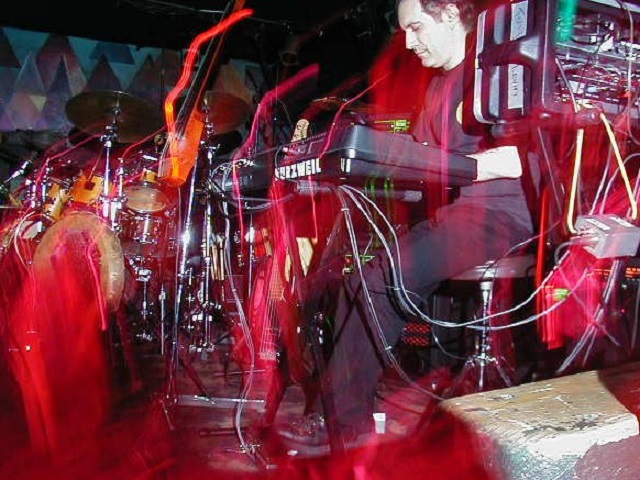
In 1975, Larry Fast, under the name of Synergy, released Electronic Realizations for Rock Orchestra, and jumped immediately to the forefront of electronic music. The album's title was a bit misleading, since the music consisted almost entirely of Moog synthesizers, not a rock band (or orchestra), but turned out to be a milestone. The Synergy albums that followed set the standards for electronic music throughout the 70s and 80s. In between his own projects, Fast found the time to record and tour with Peter Gabriel and many other artists. He has also stayed at the forefront of advancing technology, from new instruments to MIDI and digital watermarking.
by Jon Davis, Published 2001-07-01
photography by Danette Davis
I read in an interview with you that you played in your first band in 1966.
Yeah, I think that was the year, like Christmas vacation '65-'66.
Were you playing keyboards?
I was a bass player.
When did you start playing keyboards?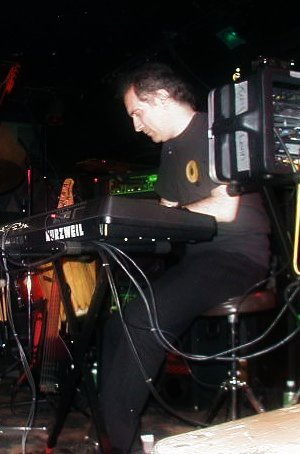
Well, I'd already been playing for a couple years, and it wasn't until like three years later when I finally had saved up enough money to buy a reasonable electronic keyboard - probably less than that. I think it was '68.
Did you start incorporating that into playing in a band right away?
Yeah. I mean I'd been taking piano lessons since the very early 60s, it just wasn't playing in any kind of ensemble thing. You couldn't carry a piano around, and I couldn't afford to have an organ, and keyboards weren't really that accepted yet into the band environment during the early Beatles British Invasion period. It took a little bit of time for it to insinuate in.
There was the Farfisa...
I held out for the British one, so I got a Vox. One of my early heroes was Mike Smith with the Dave Clarke Five, who was keyboardist with the band.
From very early on you've had a foot in the serious academic electronic world as well as the pop world. Do you find that some of the people on the academic side look down on you because of your pop work?
Well, I've never really been that much a part of it. Wendy Carlos has had more experience with that than I did, because she really came through the Columbia Princeton electronic music lab program with a masters degree, and I never did and advanced degree. So with the undergraduate composition work, I had sort of like a dark little secret that I was doing rock and pop things on the side. And I think that of all of us, Wendy really took most of the brunt of that by being so successful and so legendary that she was really not accepted by the people that she had been through the academic world with, and it was only when a couple of people with really good credentials, people like Leonard Bernstein and Glen Gould, stood up and said, "Hey, this is really legitimate, this is really good," that there was at least some recognition of what she was doing. But she'd really turned her back on the bad treatment that she got there and never really went back to academia. I was never really a part of it, and I think what's happened is a sort of third movement has come to exist, which is people like Wendy and maybe Philip Glass, Steve Reich, you know, people who do come out of the academic world, and I kind of slid in from the other direction, with some formal training, but not - I was never teaching assistant for undergraduates, or even a major in music, you know. It was just a different direction, but the ironic thing is that about a year ago I was contacted by the Columbia program. Now I serve as a kind of an informal advisor to the program there, and it's really changed a lot, because the old guard - the old serious composers, who now if they were still alive would be a hundred years old - have largely been replaced by senior people in the department who are in their forties, and the grad students are very hip twenty-somethings ,so it's really quite different. Lots is changing.
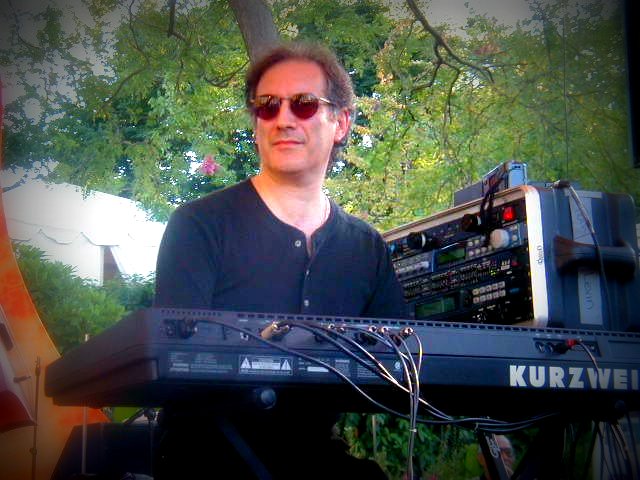 Hasn't it been a while since you played in a band setting?
Hasn't it been a while since you played in a band setting?
It has, as a matter of fact.
Is it difficult adapting back to that?
No. That was the surprising thing, it's really the same - the equipment's a little different, in a lot of ways it's a bit easier. It's a terrible analogy, but it's like riding a bike or something. And especially because it's these guys, so this is like a college reunion or something like that, and it hasn't been as though I haven't done any - I've done the Wendy Carlos things a couple of years ago, and I'd have moments here and there from my other life, my other world, my friends in Bon Jovi. I get called up on the stage occasionally on the solo tours and stuff. It's little things like that, but this is the first extended thing in quite a number of years.
For the live work here I noticed you've got the Kurzweil and a rack up there, and that's pretty much all you're using.
The Kurzweil and an E-MU Audity.
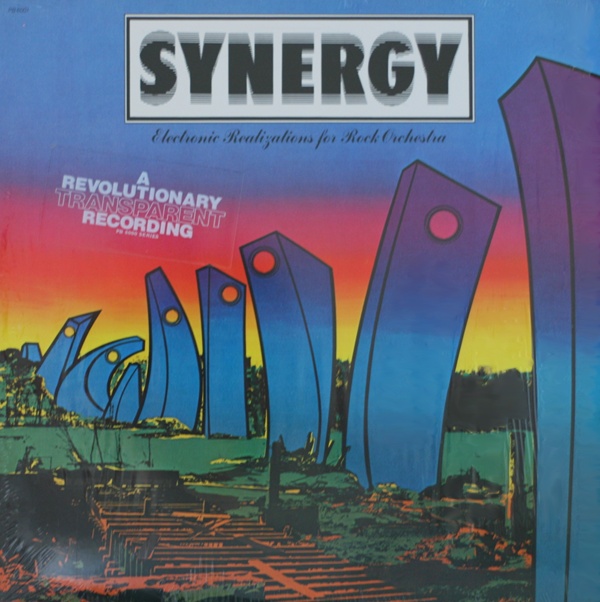 Using digital recreations of some of the analog sounds?
Using digital recreations of some of the analog sounds?
Exactly. In fact the Audity is doing more of that. That's an instrument they've already discontinued and replaced but it's a very good digital engine with a lot of analog class sounds capable in the architecture. During the set I'm doing one Synergy piece, and obviously that was all done with Moog modular originally, and they're digital patches, they're not samples of the Moog. They're actually rebuilding the sounds using the digital synth engine that's in the Audity with a bit of the Kurzweil, and it works great. In fact after tweaking it, they're better than a lot of the Moog sounds were originally - they've got more power and thunder and life to them. I would have loved to have had that kind of power back then.
There are some keyboard players who are analog purists and some who are totally digital, but you straddle both worlds. Of course, you started back when analog was the only option...
And I love the class of sounds the analog instruments were capable of doing. I've come to appreciate them more as time has gone on than I did at the time when that was the only stuff we had to work with, and it was very frustrating. But I'm not a purist in the sense that "if it's analog it's good and if it's digital it's bad" at any rate. They're all just tools, so it's just what tools do I use to get done what needs to get done, musically, sonically, and especially in this case, the digital instruments like the Kurzweil, like the E-MU, and there are others out there - I use more in my own studio at home, but these just suited themselves beautifully for what we're doing live here.
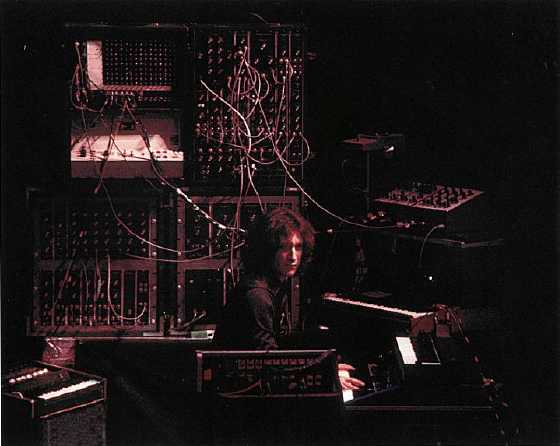 It's not like the old days where you had to carry multiple racks of keyboards around to get the different sounds.
It's not like the old days where you had to carry multiple racks of keyboards around to get the different sounds.
When it comes right down to it, even in the last year or so I could reduce it really down to a MIDI keyboard and a Powerbook and I could pretty much do the show if I wanted to configure it, and I don't think it would sound any different. It's just really getting ridiculous at that point.
I recently reviewed a record that prominently declared that no sequencers were used in the recording, and my thought was, what's the difference?
I suppose somebody who really is a wonderful, facile, and highly trained keyboardist wants to make note of the fact that they can play that precisely, and part of the attraction is that they're a virtuoso as a keyboard player. I suppose it's nice that they can get recognition because anybody with even the most minimal chops with a sequencer can tweak it and fix all the errors until it sounds as good as that guy could probably play it in real time. I have to sort of agree with you. I sort of straddle the fence on that. I have a lot of respect for really phenomenal keyboard players. I've never put myself in the virtuoso class - it's always for rock and roll, and up to a certain level of classical work I'm perfectly adequate, but I'm never gonna be a Horowitz, I'm never gonna be the extreme top level of the classical players. I didn't take that route; I didn't do the fifteen years of running the piano exercises every day for four hours. I wanted to be in the writing end of it, so that's where I focus. I have friends who are really phenomenal keyboardists, and they're just great, and I have undying respect for what they do. But when it comes to producing a record, then I'm more of a realist. The end product is the most important thing: what are the people that are unschooled in how you make the stuff and how you play it gonna think. Are they just gonna enjoy the music, or are they not? And that's really the bottom line figure for me.
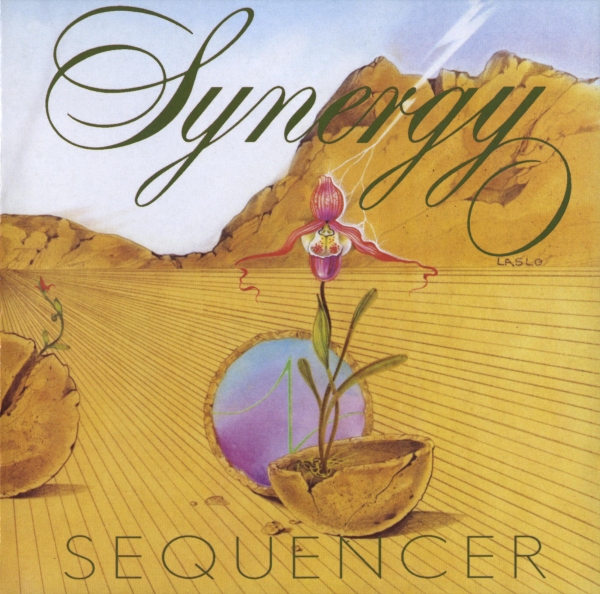 After a long time of sporadic availability your Synergy catalog is finally becoming available. How has that come about?
After a long time of sporadic availability your Synergy catalog is finally becoming available. How has that come about?
What had happened was that Jem Records - which was the parent company of the Passport Records Group with Passport, Passport Jazz, Audion, Important Records - the record label group was always profitable, but the parent company, the record distribution company, wasn't doing so hot, and that dragged everything down. That was the bigger part of the company. At any rate, in 1988 and '89 they went through their whole bankruptcy proceedings, and they finally just bit the dust, and everything that was tied to them ended up being contested over who really owned it and who had the rights to reissue or whatever. And I was in there in federal court slugging away with everybody else that was part of it. It took five years for the cases to work their way through the courts, but around 1994 the dust cleared and I asserted that they were my records, and I had the cancelled checks and studio work orders and all the things that were part of the studio House of Music where I'd recorded, where I was actually an investor in the studio. I put everything through that, and I had paid. Even though I was a part owner, I always paid for our operating costs. So I always got things done a lot cheaper than the outside clients did, but I had the checks and the court accepted that. Ultimately there were other people that said that they owned their records as successor corporations, and they said "Nope, you guys aren't."
So almost as soon as that was done - I'd always had physical possession of the masters and had physical possession of the artwork, which was another thing that I needed, so it was just really the right to get out there unencumbered legally, and put them out and not be challenged by somebody else trying to put an injunction on me. After that, that's exactly what I did. I went right to the first album, pulled the masters back out - I have a fairly comprehensive digital studio at home, and I did all of the, in a sense, fix-ups, but they weren't really so much fix-ups as just making the CD masters the way they should have been done, and not off of the LP masters, but going back one generation earlier to the original studio mixes, and then preparing that without all the stuff you have to do to squeeze sound into grooves on vinyl - which is another whole story. But in most of my records, it was kind of sad how bad vinyl is, and how we had to really just shoehorn it in to accommodate all the bad things about vinyl. Now I can just blow all that out and get all the low end I wanted, and all the high dynamic ranges, and everything else that CDs are capable of. I could put that on the replication master, and that's exactly what I did. Synergy's been a corporation for twenty years, so I started a little label under that and got the first three albums out over about a two year period. And they started showing up on SoundScan. There was a little ad hoc distribution network, with places like The Artist Shop that were just wonderful, they were so helpful in getting this whole thing launched. Barry was just terrific, and still is just a really helpful guy.
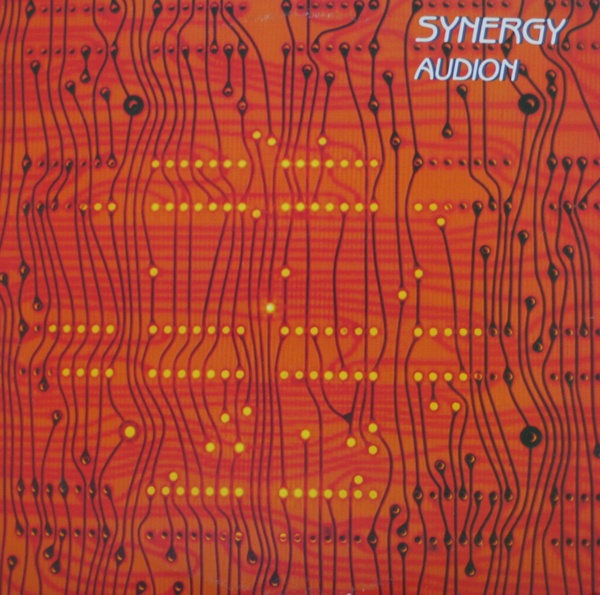 Once things started showing up, it was one of these odd coincidences where Marty Scott - who was the original president of Passport Records and founder of Jem Records, and he's still in the media business - was having a casual conversation with one of the people over at PolyGram, a guy named Bill Levinson, and somehow or other my name came up. Bill said, "So whatever happened to those records?" And Marty said, "Hey, he's got them out, he's putting them out independently." And they checked SoundScan, and sure enough, they were showing up, so we did sell an appreciable number of copies. And then my plan had been to put out about one a year till I got the whole catalog out. Within three months, I was in the offices of PolyGram. They said, "We want to license the whole shooting match and put it all out during the 1998 year." And that's exactly what happened. So it worked out beautifully for all of us.
Once things started showing up, it was one of these odd coincidences where Marty Scott - who was the original president of Passport Records and founder of Jem Records, and he's still in the media business - was having a casual conversation with one of the people over at PolyGram, a guy named Bill Levinson, and somehow or other my name came up. Bill said, "So whatever happened to those records?" And Marty said, "Hey, he's got them out, he's putting them out independently." And they checked SoundScan, and sure enough, they were showing up, so we did sell an appreciable number of copies. And then my plan had been to put out about one a year till I got the whole catalog out. Within three months, I was in the offices of PolyGram. They said, "We want to license the whole shooting match and put it all out during the 1998 year." And that's exactly what happened. So it worked out beautifully for all of us.
Now they've since been absorbed by Universal, and Universal has been absorbed by Vivendi, and I don't know what kind of restructurings are going to happen on that, but if that doesn't continue to be the home, there'll always be a home somewhere, even if I just go back to indie distribution on it. But there are other labels out there that have expressed interest anyway.
It's ironic that you should mention all the compromises you said you had to make to put your music on vinyl. There are still vinyl purists out there who insist that that's the way music is supposed to sound.
I know. I think I know what they're hearing, and a lot of it has to do with the RIAA equalization curve and the heightening that happens when it decodes, where it doesn't decode completely. Or there are a lot of little things, tricks of engineering design that have been used - I gotta go play. We'll pick this up, okay?
Later...
What about some of the current electronic stuff that's coming out? A lot of it is built on things you did back in the 70s.
I'm not as encyclopedic about knowing everything that's out there as I used to be at one time. The other thing that happens I've found, is that when I was a wannabe getting into music back in the 60s, I would buy every record that came out and I'd know every track, and I knew who played on what record. And then when I started doing it, I didn't have time to be doing the other things. So your focus gets narrowed a bit, but in one sense when the techno thing started bubbling up almost ten years ago, I thought that was pretty neat. It was pretty interesting that it was getting used, the instruments started showing up, and it was kind of nice after all the backlash during the punk movement when nothing electronic or anything that wasn't sort of thrashy guitar wasn't considered accepted. So it was nice to sort of come out from under the shadows, but like any mass movement there's ninety percent junk, ninety-five percent junk, and then some really stellar things come out of it. And they come out in the weirdest ways. I liked a lot of the early Moby stuff, and I actually like the stuff that he's doing now, you know. It's kind of different, but it wouldn't be the kind of stuff I'd choose to do, I just found it interesting probably because it wasn't what I'd do. So I'm probably not a good judge of that for other people's listening experience.
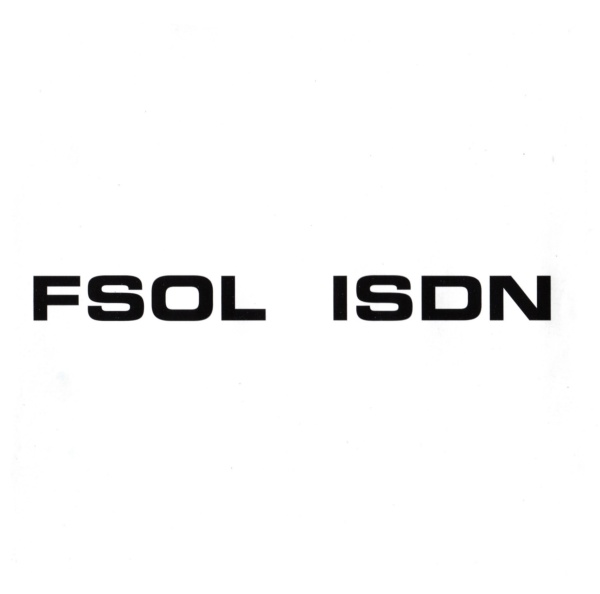 I've found that there's just so much of it that trying to figure out what's good and what's not is very difficult. I've been listening to Future Sound of London...
I've found that there's just so much of it that trying to figure out what's good and what's not is very difficult. I've been listening to Future Sound of London...
Which is very interesting, because I've got a big thing going with them because they sampled me without my permission.
Do you think you'll work something out with them?
Oh, yeah. The lawyers are talking, it'll happen. It's just a matter of, if you're not going to create stuff and sample from something else and call it your own, you better credit it. That's just fair. I don't think anybody in the pre-sampler era would have even dreamed of doing something like that. So it's just a matter of etiquette, acknowledging that somebody else put in the sweat first.
Sometimes it ends up so changed that you don't even recognize what the source was.
Well, if it does, then I think it's probably crossed the line where it's really been transformed. But when it's essentially the same thing, it's just a beat change or a beat laid over it, it might be an interesting collage work, and it might make an interesting work, but it wasn't really the work of that person who's claiming it.
In my research I've come across you talking about digital watermarks. Can you explain that concept?
It's basically a way of embedding in the audio stream a real low level, low bit rate digital information stream, that's at such a low level and so well woven in that it's completely inaudible. You cannot find it in there. It amounts to if you were comparing the data of the audio to the data of the watermark, it's an infinitesimal amount, it's very small. Anyway, it is a way of encoding a very little bit of information - usually it's just a number tag - and it's something that refers to a worldwide database that is now being compiled that lists every released piece of music. And the watermark then becomes a part of the program material and can be recovered with a fairly simple computer program and then it says, "This is the piece of music, here's the ID number." If you refer to this master database, it'll tell you who wrote it, who performed it, who the royalties should go to now if you want to use it, that sort of thing. So it's something that's going to be real important.
![]() In fact it's already becoming important because in most of the recorded history of music in the last hundred odd years since the late 1870s, music, when it was recorded and then sold and distributed, always had some sort of a wax or plastic or shellac carrier with it. There was always a physical thing that had a paper or cardboard label attached to it that gave all that information, and that's how the whole business of music - you know, the kind of dark commercial underside we don't want to think about when we're making art, but it's how we actually get paid - that's been in place for a century or more. Now it's changing because all of a sudden music can exist without its physical carrier anymore. The only way that this kind of tracking of ownership can go on is to somehow attach it to the digital signal - and in fact these actually work with analog transformations. Once it's in there, it's in there, and it's not coming out. So the watermarking is just a system to do that, and it can be used for anything as innocuous as kind of the way I think it'll probably get used [which] is that when internet radio stations play something, when a file is transferred in a commercial way, that there'll be a little tracking that says this was sold or this was transferred, and there's a performance royalty of a penny (or whatever it's going to be) is due on it. To the free music way of thinking there's probably a more sinister way of using it, which is to match the watermark to some kind of an encryption key, that if you bought a download you have it. If you didn't buy it, you don't have it and maybe it won't play on your MP3 player. I don't know. By 2004 or something like that, that kind of anti-piracy anti-music-theft thing is not going to work, because there's always going to be a hack-around to keep it out of there. So I think that probably the more subtle, soft way of doing it [is better].
In fact it's already becoming important because in most of the recorded history of music in the last hundred odd years since the late 1870s, music, when it was recorded and then sold and distributed, always had some sort of a wax or plastic or shellac carrier with it. There was always a physical thing that had a paper or cardboard label attached to it that gave all that information, and that's how the whole business of music - you know, the kind of dark commercial underside we don't want to think about when we're making art, but it's how we actually get paid - that's been in place for a century or more. Now it's changing because all of a sudden music can exist without its physical carrier anymore. The only way that this kind of tracking of ownership can go on is to somehow attach it to the digital signal - and in fact these actually work with analog transformations. Once it's in there, it's in there, and it's not coming out. So the watermarking is just a system to do that, and it can be used for anything as innocuous as kind of the way I think it'll probably get used [which] is that when internet radio stations play something, when a file is transferred in a commercial way, that there'll be a little tracking that says this was sold or this was transferred, and there's a performance royalty of a penny (or whatever it's going to be) is due on it. To the free music way of thinking there's probably a more sinister way of using it, which is to match the watermark to some kind of an encryption key, that if you bought a download you have it. If you didn't buy it, you don't have it and maybe it won't play on your MP3 player. I don't know. By 2004 or something like that, that kind of anti-piracy anti-music-theft thing is not going to work, because there's always going to be a hack-around to keep it out of there. So I think that probably the more subtle, soft way of doing it [is better].
I mean, right now the same thing goes on with all broadcast music. Radio stations log what they play, TV stations log, and cable stations log, then report back to ASCAP and BMI, pay license fees, and all of us who write music get checks every so often. All this is just keeping the same system in place - basically that's where I see it being used.
But given the huge amount of music that's out there now without watermarks - I mean I can easily take out one of my old vinyl albums and rip it to an MP3, and there's no watermark on that.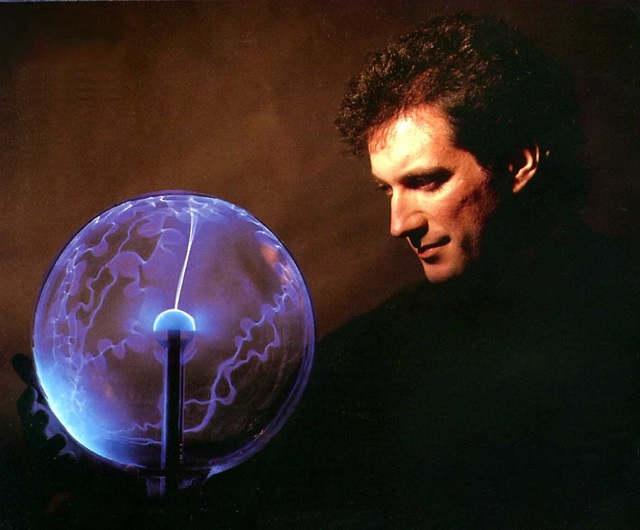
Absolutely.
You've got the huge body of work that's already been recorded...
It's really going to have its value in the future, as new stuff's coming on line, because there'll be the 'Nsyncs or Christina Aguilleras of the year 2007. They're going to have something on it by then. The majors are all signed onto this now, so it's something that's coming in. I was kind of a pioneer in it, so my stuff's watermarked. Wendy Carlos's stuff's watermarked. And there are other early pioneers who were part of the beta development phase of this, so we just kind of got out there early with it. You're absolutely right, there's going to be no way to corral the Beatles' catalog or the Nirvana catalog or whoever sold a lot in the last forty, fifty, sixty years that still has some value out there.
It's going to be really weird to see what happens, since there are so many things happening now that turn the whole way the music business works upside down.
And it could in theory change it so radically that there isn't the financial incentive to do this kind of thing [referring to the Tony Levin tour] anymore. Musicians do have to earn money to buy the equipment, you know, even on a local level. It's something that the society itself is going to have to work out. It's been done before. There have been upheavals before in the business. Every time there's a new technology, they go, "Oh it's all over!" Just [like] the rise of ASCAP, BMI, and the things that happened when recorded music came in and changed everything. When radio came in, [that] changed it again. There have been huge upheavals - probably even bigger than what we're seeing now. The whole concept of recorded music, and that people could buy that performance, was so radical, and it really changed everything. Copyright laws were totally rewritten to incorporate that. The ones that exist now probably can be applied. They were fairly foresighted even back in 1909, looking at what mechanical transmission was going to be. The internet hasn't really changed the fundamentals of it. This whole thing of free distribution with commercial use and non-commercial use is new, so there'll be some jockeying of the lines there.
Some people have said that it's very nearly to the point where any music pretty much by default will be distributed free, and musicians will have to make their money on other things.
Like T-shirts, I keep hearing.
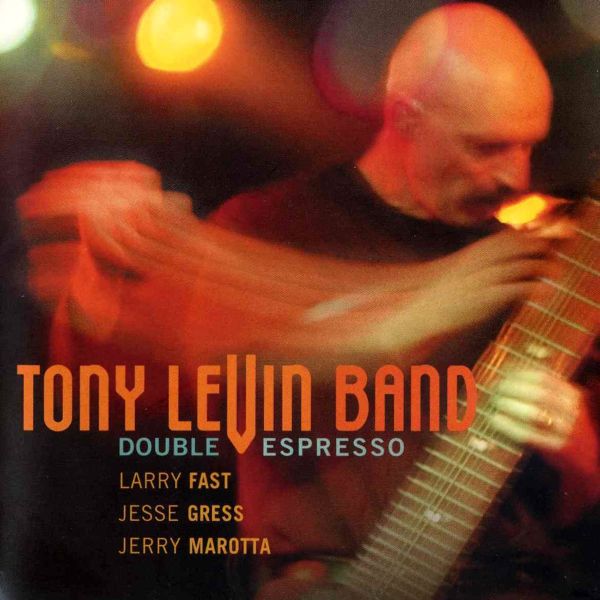 And ticket sales. But that only works for the people who are selling a lot of T-shirts.
And ticket sales. But that only works for the people who are selling a lot of T-shirts.
In all honesty, we did all the promotion on this whole part of the tour. The money came from the record - we lost money on the tour. Most bands lose money on the road. We lost money on the road with Peter Gabriel for probably the first six years, and it was only that record sales were good, that the records could keep underwriting [it]. So I think I've heard those arguments, and they're really for people who are wishful thinkers. I've heard that from people in the business, and they're not doing this. They're not coming from a realistic database on that kind of information.
It seems to me that the people who are really going to be hurt are the ones who aren't the really big stars -they're going to be able to make their money one way or another - but the people who are struggling and want to quit their day jobs.
Or building a new act. That's going to be a really difficult thing.
So it will be interesting to see how that all comes out.
But it will shake out - it's done it in the past. The whole concept of publishing... Before there were records, it was all done on sheet music, each piece of sheet music sold for a royalty. And then records came out: kind of an extension of that, and so were piano rolls. But then when radio came in, all of a sudden it was real different. At that point they had to find a new way, because it was free distribution. People could hear it - thousands of people at a time would hear it for free. So how do you get paid? And then the whole concept of blanket licensing of radio stations came in, and that's not really any different than internet radio stations. They were trying to get out of that, saying that is wasn't broadcasting, and I think that was a really nice end run that the internet stations were trying to do, because it would have saved them a lot of money. But they are doing it. It's not that different from radio. And with all the swapping that goes on, maybe it'll be the servers that have to do the licensing. There's ways to track that.
You were one of the early proponents of MIDI, and then General MIDI. Could you give a little background on your involvement with this? And how do you feel about some of the extensions to the specification that have been developed, such as those by Roland and Yamaha?
I was around, watching and experimenting, at the birth of MIDI. My work was in writing software to access the MIDI-like capabilities of the Prophet 5's Universal Synthesizer Interface around 1981. The USI was a general purpose music interface proposal made by Dave Smith of Sequential Circuits and presented at AES in a technical paper. The USI as implemented on the Prophets was remarkably similar to what later became MIDI after a multi-manufacturer conference to hammer out MIDI. When the MIDI spec was finally released, I found that I didn't have to make too many revisions in the software I had written for USI to make it MIDI friendly. The interface between different synthesizers and sequencer devices was a big leap forward and made possible a lot of the evolution of recording techniques for synthesizers leading up to digital recording on small computers. I should be clear that except for a little feedback to the people I knew who were directly involved in the engineering initiative, I didn't have a design or other connection with the development of the MIDI spec. But I was cheering on the sidelines very close to the action.
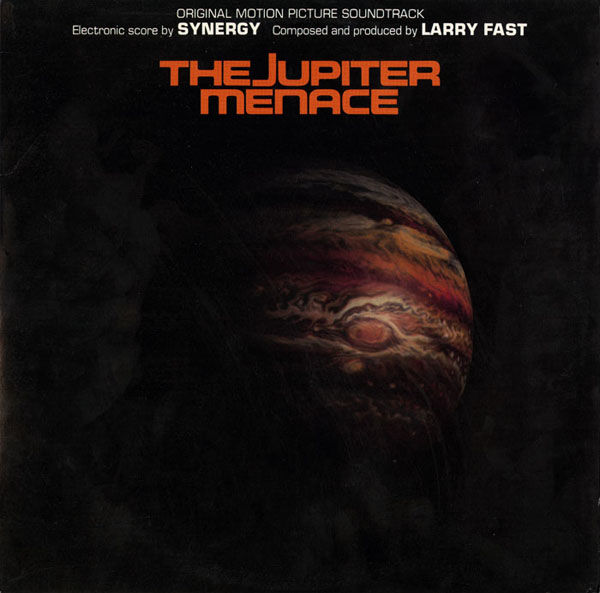 For me the advent of a solid musical protocol like MIDI and the development of really useful sequencing software (better than any of the ones that I had written) gave me and other musicians composing and arranging tools as powerful as the word processors had been for writers and editors in the previous decade. I never went back to the old way of multi-track recording once MIDI sequencers with SMPTE time code became available. I think that the ease of editing has helped me become a better composer. It's possible that MIDI will be replaced by USB or Firewire interfaces on newer instruments, but the basic way of working creatively won't change as much as refine the big changes that relatively low-tech (by today's standards) MIDI brought.
For me the advent of a solid musical protocol like MIDI and the development of really useful sequencing software (better than any of the ones that I had written) gave me and other musicians composing and arranging tools as powerful as the word processors had been for writers and editors in the previous decade. I never went back to the old way of multi-track recording once MIDI sequencers with SMPTE time code became available. I think that the ease of editing has helped me become a better composer. It's possible that MIDI will be replaced by USB or Firewire interfaces on newer instruments, but the basic way of working creatively won't change as much as refine the big changes that relatively low-tech (by today's standards) MIDI brought.
I don't have much of a connection with General MIDI. I think that the underlying concept is good for "general" use, but it's way too limiting for my uses in a truly creative way. It does make a good lowest common denominator way of playing back multimedia files. However as digital recording and small computers become more capable, it might become a common solution for a composer to record the finished mix for distribution rather than having the general MIDI device synthesize the sound, with varying degrees of success, on the the fly. The Roland and Yamaha extensions to the sound sets certainly help as long as the end user has the same sound sets, but it also adds a degree of uncertainty to the mix if there is a mismatch.
As to the general evolution of MIDI, there have been various manufacturer system exclusive additions to the original spec, which is a good thing. It allows for tailored control of very different types of instruments. As long as the basic MIDI note and performance control function parameters remain intact, then the specific extensions don't bother me.
Filed under: Interviews, Issue 22
Related artist(s): Larry Fast (Synergy)
What's new
These are the most recent changes made to artists, releases, and articles.
- Review: LeoNero - Monitor
Published 2026-03-04 - Review: Sterbus - Black and Gold
Published 2026-03-03 - Release: Janel Leppin's Ensemble Volcanic Ash - Pluto in Aquarius
Updated 2026-03-02 15:06:51 - Release: Janel Leppin - Slowly Melting
Updated 2026-03-02 15:05:27 - Release: Alister Spence - Always Ever
Updated 2026-03-02 15:04:11 - Release: Let Spin - I Am Alien
Updated 2026-03-02 15:02:41 - Review: Falter Bramnk - Vinyland Odyssee
Published 2026-03-02 - Review: Exit - Dove Va la Tua Strada?
Published 2026-03-01 - Review: Steve Tibbetts - Close
Published 2026-02-28 - Release: We Stood Like Kings - Pinocchio
Updated 2026-02-27 19:24:02 - Release: Stephen Grew - Pianoply
Updated 2026-02-27 19:20:11 - Release: Thierry Zaboitzeff - Artefacts
Updated 2026-02-27 00:16:46 - Review: Kevin Kastning - Codex I & Codex II
Published 2026-02-27 - Release: Zan Zone - The Rock Is Still Rollin'
Updated 2026-02-26 23:26:09 - Release: The Leemoo Gang - A Family Business
Updated 2026-02-26 23:07:29 - Release: Ciolkowska - Bomba Nastoyashchego
Updated 2026-02-26 13:08:55 - Review: Immensity Crumb - Chamber Music for Sleeping Giants
Published 2026-02-26 - Release: The Gatekeepers - Diary of a Teenage Prophet
Updated 2026-02-25 15:55:58 - Listen and discover: Mordecai Smyth will not break your back
Published 2026-02-25
